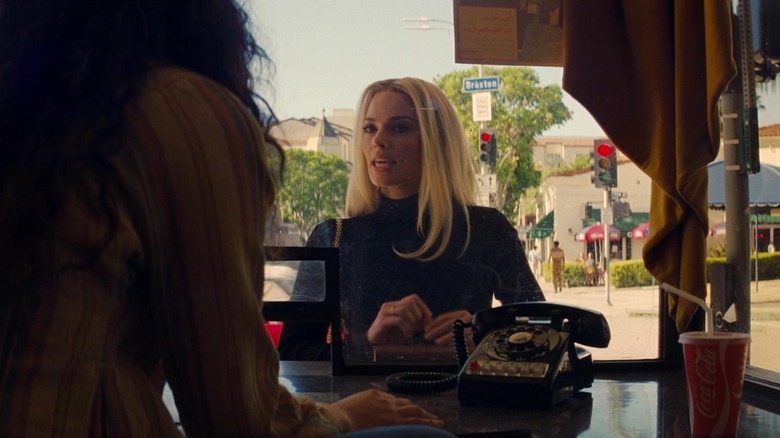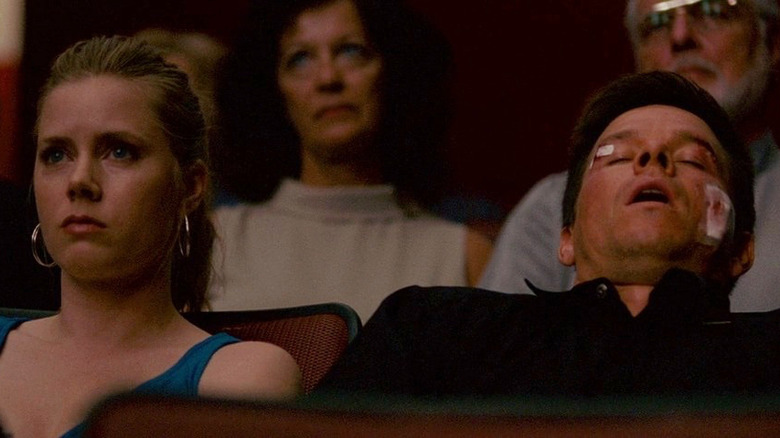Movie Tickets Might Get More Expensive Very Soon – Here's Why
It's been an up and down journey for the movie business over the last four years — with a great many downs along the way. 2020 and the pandemic completely upended the industry, with theaters shutting down for months on end, every studio doubling down on streaming, and "Trolls World Tour" spawning what we now know as premium VOD, allowing for new movies to play at home as they're still playing in theaters. So, where are things headed in the coming years? The good news is that it looks like the box office will recover to pre-pandemic levels. The bad news is that going to the movies is likely going to become even more expensive to make that happen.
Recently, the consulting and accounting firm PwC recently released its annual "Global Entertainment & Media Outlook." Ranking as one of the largest such firms in the world, this is a comprehensive report and, while the predictions are not set in stone, they are certainly well-researched guideposts to understand how the industry might look in the coming years. To that end, PwC expects that 2025 will see the global box office top $37.68 billion, which is close to pre-pandemic levels. It well then top $40 billion in 2026, getting us back to where we were in 2019 when ticket sales topped $39.1 billion. That's good.
Rather crucially though, this will be "helped by ticket price hikes and advertising growth." That's the bad part, which we'll examine more closely here in a moment. Bart Spiegel, global entertainment and media deals leader at PwC, shared some further insight with The Hollywood Reporter, explaining:
"In last year's report, we anticipated that pre-pandemic levels would be reached by 2025. However, this year's report predicts that the return will occur in 2026, indicating a more pessimistic outlook. Some of this can be attributed to a stronger budget slate throughout the year 2026."
Fewer, more expensive movie tickets sold worldwide
There's a lot to unpack here. First off, the recovery has been slower than expected pretty much ever since 2021 when the domestic box office topped $4.4 billion. That represented a huge increase over 2020, but it was still less than many in the industry had hoped. Last year, we had the Writers Guild of America and Screen Actors Guild strikes, both of which dragged on for months before finally ending late last year. That upended the release calendar for 2024, which led to a troublingly slow start to the year at the box office. That impacts everything down the line.
That brings us back to the good news. Even though it's later than planned, reaching pre-pandemic levels of revenue from ticket sales at theaters is a positive development. There was doubt as to whether or not that was going to be possible. Unfortunately, the number of tickets sold is still expected to decrease. As Spiegel further noted:
"Admissions are not expected to return to pre-pandemic levels throughout the forecast period. By 2028, the last year of our projections, admissions are projected to fall short by 1.5 billion compared to pre-pandemic levels."
So, what does that look like? Somewhere in the neighborhood of 6.45 billion admissions in 2028, as opposed to 7.92 billion in 2019. That year, Disney alone pulled in $10 billion globally at the box office, becoming the first studio in history to do so. The trend is expected to carry out both domestically and overseas. In essence, that means the exhibition industry is expected to sell fewer tickets at a higher price, which will get us back to pre-pandemic levels of revenue from the box office. That is, at very best, a mixed bag that opens up a whole host of additional questions for the future of the industry, particularly as it relates to the theatrical experience.
Will this be better or worse for the theatrical experience?
We've already seen signs of exhibitors doing what they can to squeeze the most money out of the customers they have, with the recent glut of collectible popcorn buckets serving as one example. That's not to say theaters and studios don't want to earn back moviegoers whose habits changed during the pandemic, with many people now content to just watch movies at home on their big LCD TVs once they hit VOD. It's just that the strategy has become to charge more for the people who are still coming.
The long term problem is that higher costs may only serve to further alienate those who are content to stay home these days. Sony head Tom Rothman recently argued that theater chains would do well to consider lowering ticket prices rather than make things more expensive, pointing out that the "discount Tuesday" strategy works very well:
"I think overall, if you look for example at how every Tuesday in America, every single Tuesday is the biggest day of the week. Why? Because of the half-price tickets. It's fundamental consumer economics: just lower the prices and you'll sell more."
It's obviously not so simple as that, and even Rothman admitted studios need to do their part as well. But the idea of trying to lower prices to turn it into a volume game rather than raise prices to maximize revenue per existing customer is a compelling one. Unfortunately, it doesn't look like that's the way things are headed for the time being.
Rothman is in a position to put his money where his mouth is now that Sony's purchased the fan-favorite Alamo Drafthouse theater chain. Luckily, this is just a prediction based on current trends. Things can change if the powers that be want them to change badly enough. Still, if PwC is right, going to the movies will get more expensive and that's something lovers of the cinematic experience may have to make their peace with sooner rather than later.


